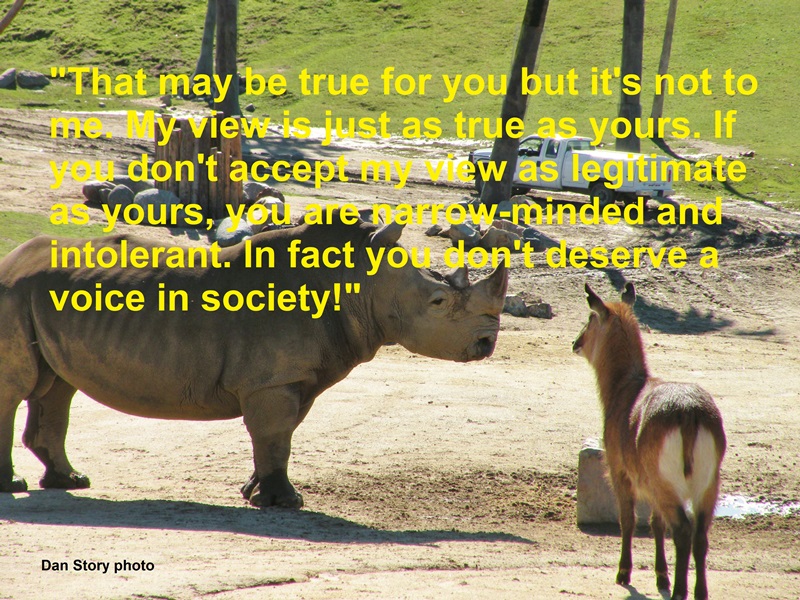
Part Eleven: Why Does Tolerance Today No Longer Mean Being Tolerant—What Does It Mean?
Let’s face it. The traditional definition of tolerance has changed dramatically since the mid-20th century. Before the 1970s, tolerance had to do with how one person treated another person. We might disagree with a person’s viewpoint—even oppose and try to refute it—but “being tolerant” meant we don’t demean the person and prevent them from having and expressing their views. However, this did not mean that everyone’s moral and religious beliefs were equally valid and legitimate. People were free (and expected) to debate opposing viewpoints and stop unethical, dangerous, and detrimental behaviors in society. In short, people were free to think as they liked, but they weren’t free to behave as they wanted.
This is no longer the case. In today’s postmodern society, the definition of tolerance has changed radically and has become a governing policy for both religious pluralism and moral relativism (see the previous two blog posts). Being tolerant in today’s postmodern culture means accepting all religious beliefs, lifestyles, and moral behavior as equally legitimate as our own—even if they contradict or mock us. One should never criticize, disparage, or reject as illegitimate or immoral anyone’s beliefs or activities. If you do, you’re intolerant, bigoted, narrow-minded, and ought to be ostracized from mainstream society (think “cancel culture”). Indeed, you should be punished.
This so-called “new” tolerance is absurd, unlivable, and inconsistent. Indeed, postmodern gurus who promote this contemporary definition of tolerance violate the very principles they claim to endorse. They insist everyone is free to think and behave as they please, and no one should interfere or impose their views on another person. But in the next breath, they condemn Christians, and other like-minded people, who adopt a view of reality in which objective, absolute moral and religious truth exists. This is clearly hypocrisy!
This redefined philosophy of tolerance puts tremendous pressure on people to conform to postmodern values. Author and researcher William Watkins accurately describes how intolerant the proponents of the new tolerance are toward the “nonconformers:”
“Nonconformers are considered racists, sexists, homophobes, Victorian prudes, religious zealots, terrorist-like fundamentalists. . . . If we call ourselves pro-life, we are labeled anti-choice. If we say we are pro-family, we are told we are anti-women or anti-gay. If we present ourselves as pro-marriage, we are reported as being intolerant moralists and antagonistic toward single mothers. If we say we are for parental involvement and choice in education, then we are said to be against children’s rights and quality education. If we uphold character and performance as the true measure for job placement and advancement, then we are looked upon as racists or suppressors of the poor and needy.” (William Watkins, The New Absolutes, 209-210)
This new paradigm of tolerance attacks the fundamental values and principles of biblical Christianity and the traditional understanding of tolerance in Western culture for centuries—yet it is now widely promoted in American colleges and universities. Nowhere is this more evident than the ideologies referred to as multiculturalism and its bedfellow, political correctness, which I’ll examine in my next two blog posts. ©